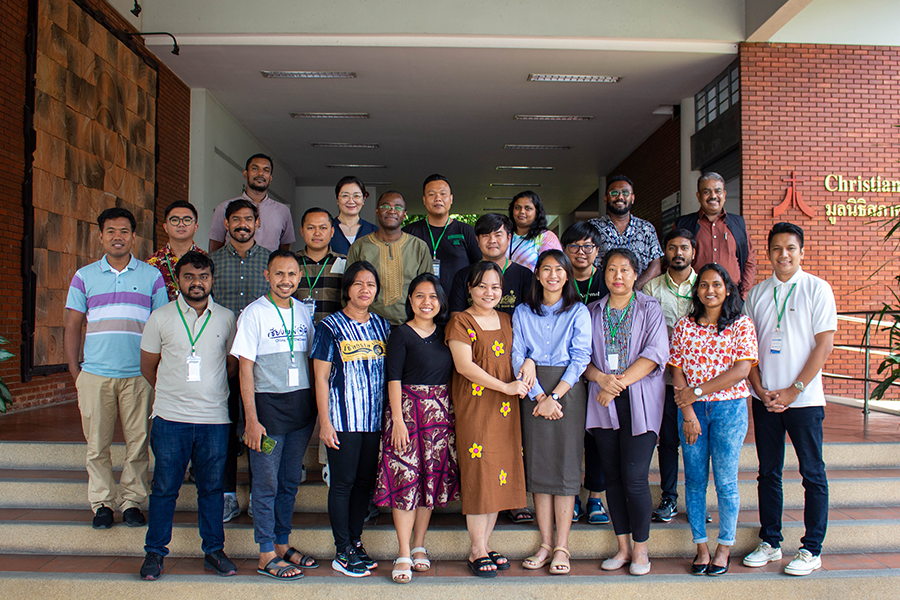“Annual Asian Ecumenical Institute of CCA provides unique platform for training prospective ecumenical leaders in Asia,” says CCA General Secretary
 AEI–2022 students at CCA headquarters in Chiang Mai, Thailand
AEI–2022 students at CCA headquarters in Chiang Mai, Thailand
“The ecumenical movement gives you a broader fellowship and mutual solidarity in working together for the unity of all God’s people and the entire creation. The Asian Ecumenical Institute (AEI), organised annually by the Christian Conference of Asia (CCA), is a unique opportunity and platform for prospective Asian ecumenists to be trained and to learn about mutual interactions and Asia’s manifold cultural contexts,” said the General Secretary of the CCA, Dr Mathews George Chunakara, to the participants of the AEI–2022 during the closing ceremony on the afternoon of 12 October 2022, at the CCA headquarters on the Payap University campus in Chiang Mai, Thailand.
In a valedictory address at the final day of the month-long AEI the CCA General Secretary recalled the beginnings of the AEI.
“The CCA continues to provide this platform for young people to live together as a community, participate in activities, and learn together,” the CCA General Secretary added, recalling that the AEI has been a good platform and opportunity because those who have graduated from the programme have gone on to become church leaders, members of ecumenical councils, CCA staff, and theological educators.
“This provides a new impetus for young people to move forward as well as an opportunity to better understand things and gain some insight into some of the relevant issues,” added Dr Mathews George Chunakara.
For four weeks, internationally acclaimed ecumenists, theologians, academics, and social activists from various ecclesial traditions who have worked in the worldwide ecumenical movement shared theological reflections and thematic presentations on missiology, Biblical hermeneutics and intersectional theologies, gender justice and inclusivity, eco-theology and stewardship of God's creation, ecumenism, interfaith dialogue, and post-humanism and its implications for the church.
The students delivered presentations on a variety of topics, including gender justice, indigenous spiritualities, digital revolution: advantages and disadvantages to the mission and ministry of the church, the plight of persons with disabilities and the call for full inclusion in society, social injustices in their respective communities amid the COVID-19 pandemic, domestic violence against women and children, Muslim-Christian harmony and promotion of interfaith harmony, and the Eastern church’s ethos with regard to ecology.
Aside from classroom sessions, AEI–2022 participants were involved in field visits for inter-religious interactions.
The theme of the AEI–2022 was ‘God of Hope, Sustain Your Creation in Harmony’.










